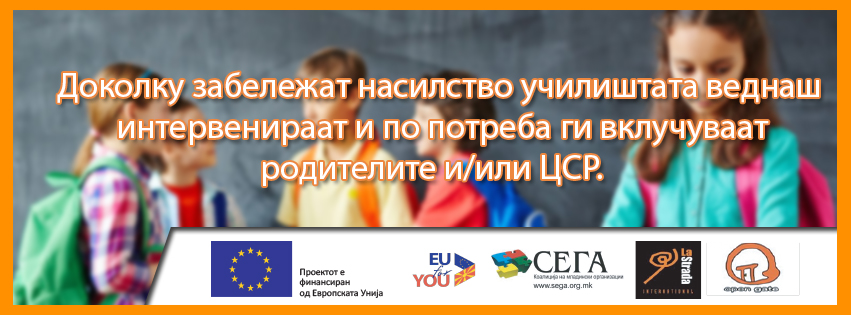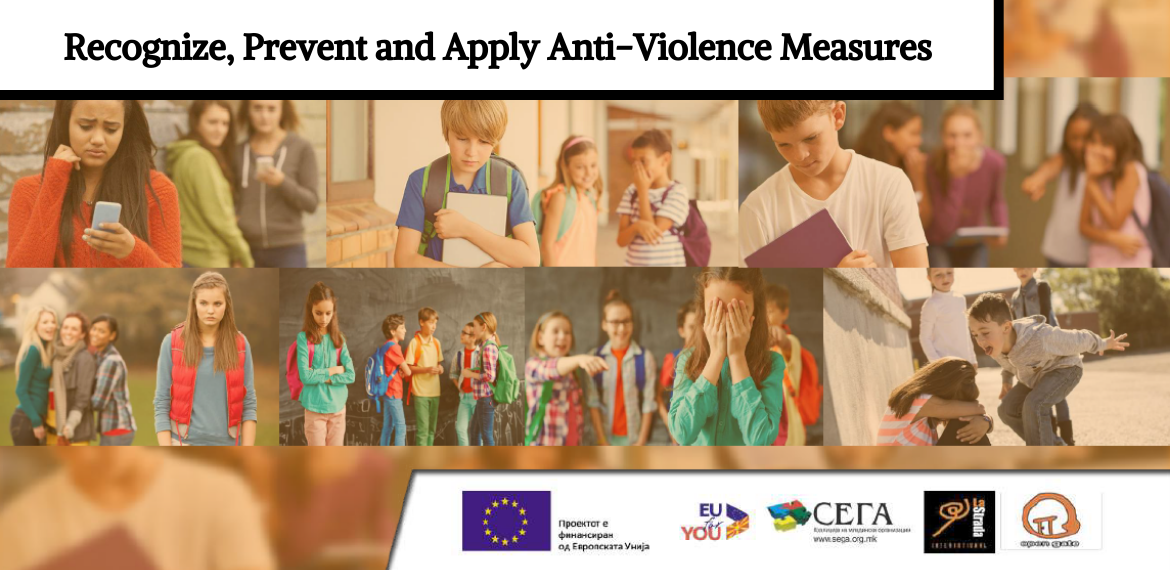
Recognize, Prevent and Apply Measures of Violence
Coalition of youth organizations SEGA, implemented the project "Recognize, prevent and apply measures of violence" supported by the EU
within the project "Strategic Partnerships for developing a social agenda for change:" Recognize, respect and exercise rights "implemented by the Association for action against violence and human trafficking Open Gate.
The main goals of the project were to improve security measures in schools and strengthen the capacity of state and local institutions to address, prevent and deal with violence in educational institutions. The project included cooperation with 15 high schools from different municipalities, in which a series of activities were implemented in the period from April to July 2019.
In partnership with 15 high schools and NGOs across our country, Coalition SEGA led the campaign against violence within this project.
The campaign aimed to raise awareness of the existence and prevention of violence among students.
Report violence, do not support it!
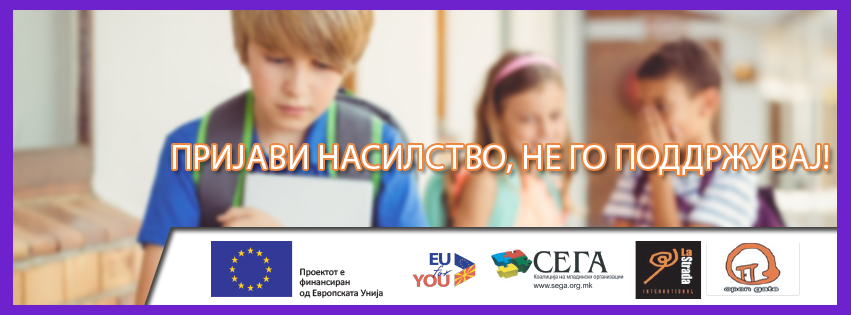
Be polite, you can not take back the words!

Be a friend, not a bully!
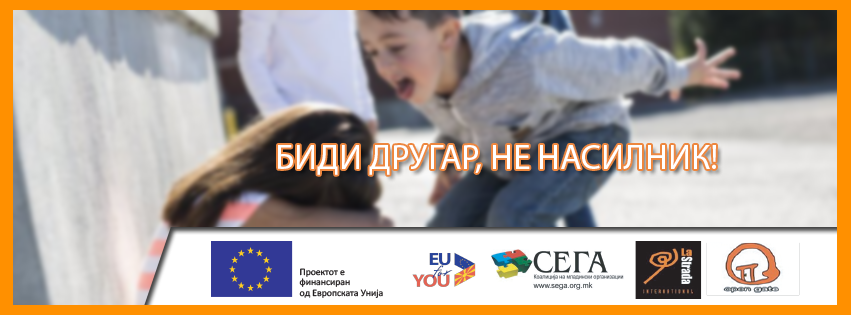
Is your online status more important than my feelings !?
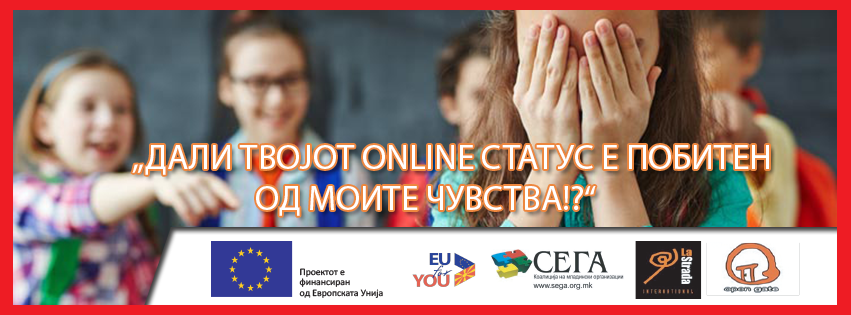
Do not post anything on the Internet that you would not want the whole class to know!

Report violence, do not support it!
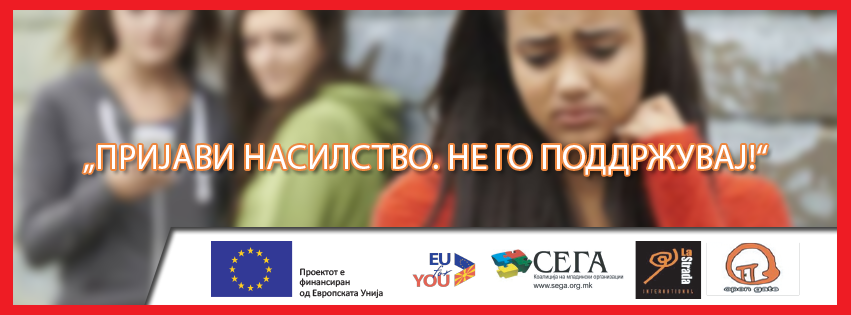
Kindness is important, start with yourself! Do not use violence!
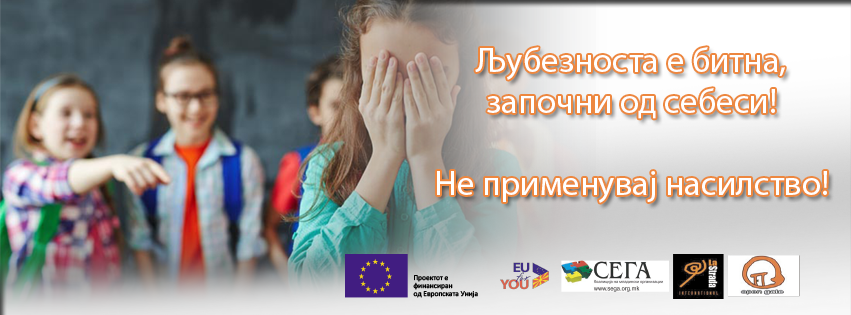
Stand up against physical violence!
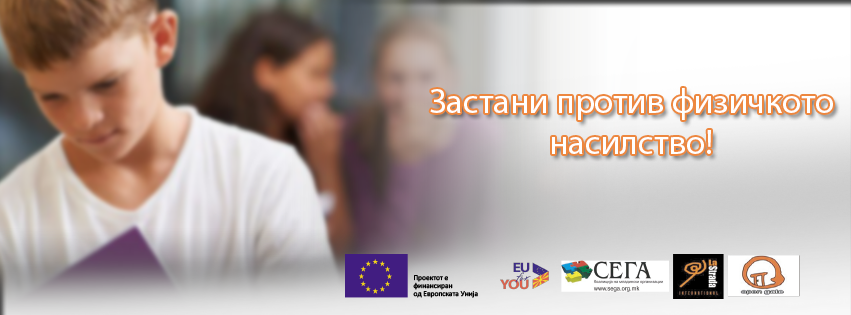
Stop the violence and make a difference!
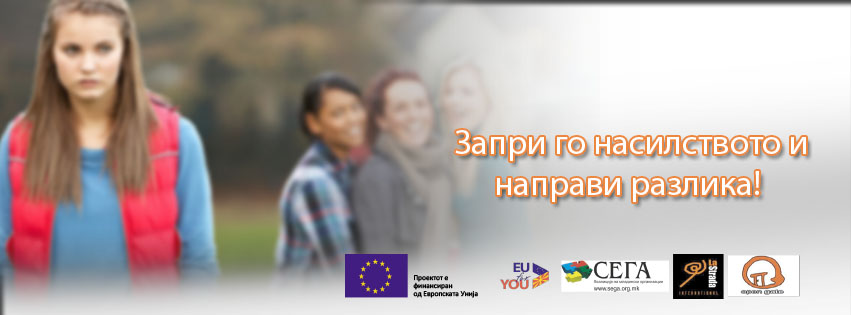
Be a friend, not a bully!
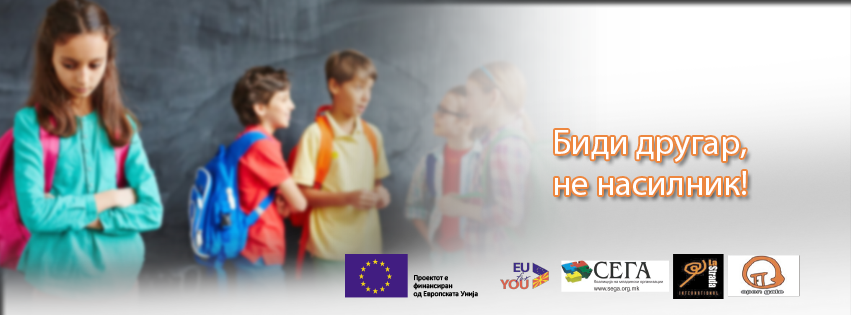
Do not upset anyone, just to make you feel better!
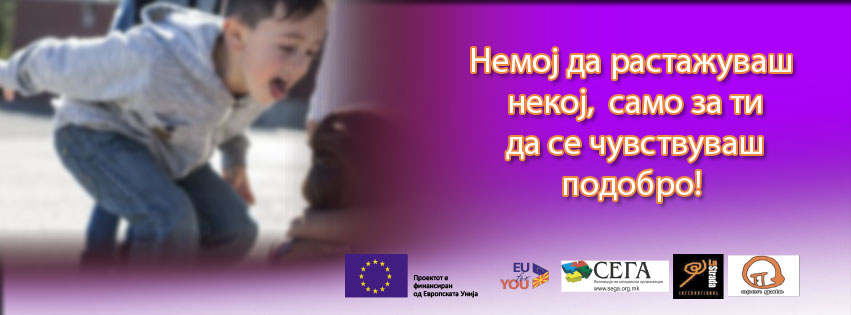
No innocent child should be bullied! Help, do not hurt!
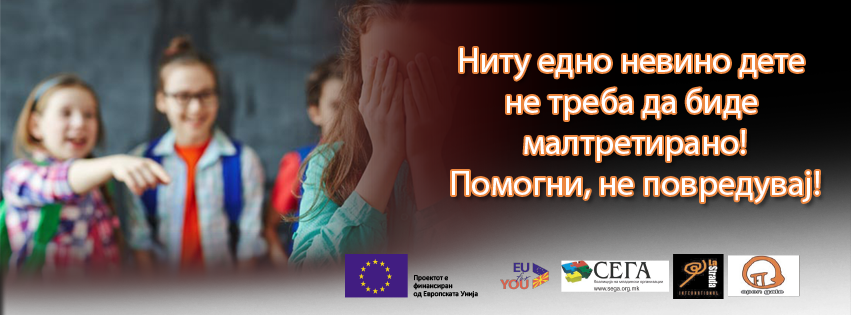
Always tell your parents where you are going, with whom and why if the meeting or event is related to an online invitation.
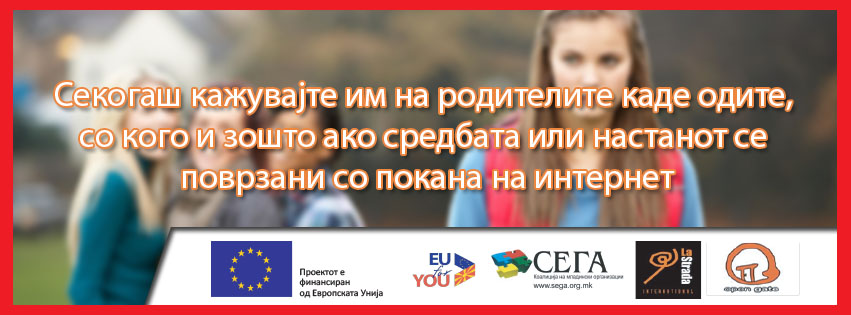
Save your password! You can share it with your parents, but with no one else, not even your best friend!
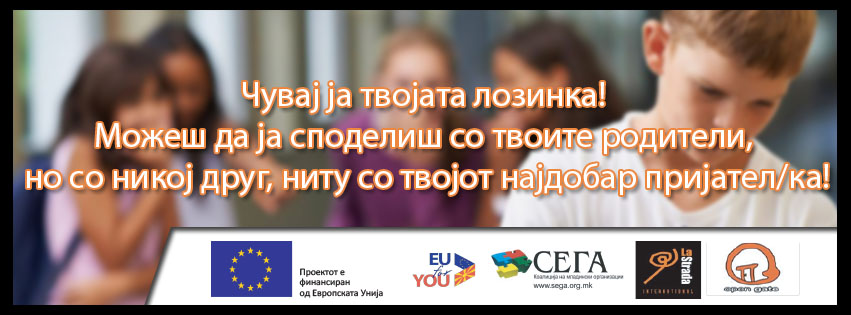
Create your email and social media accounts with your parents.
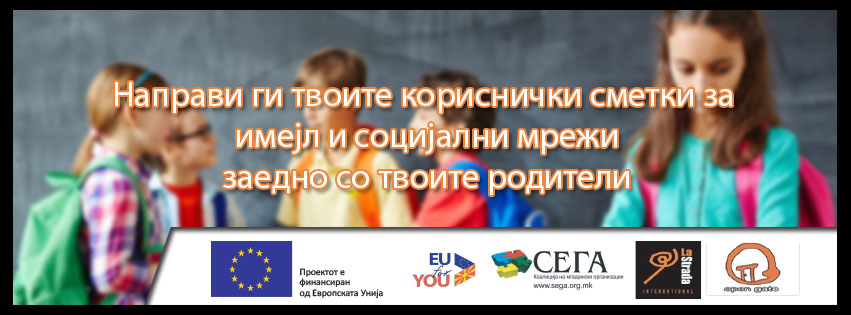
It often happens that children who have suffered violence, after a while start to commit violence too!
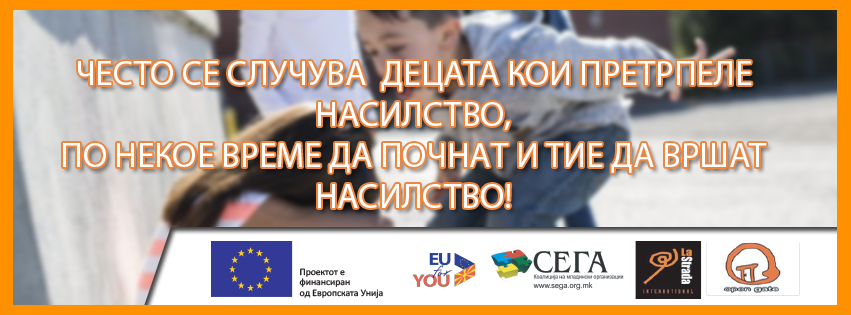
Help prevent peer violence - do not stand aside - react!
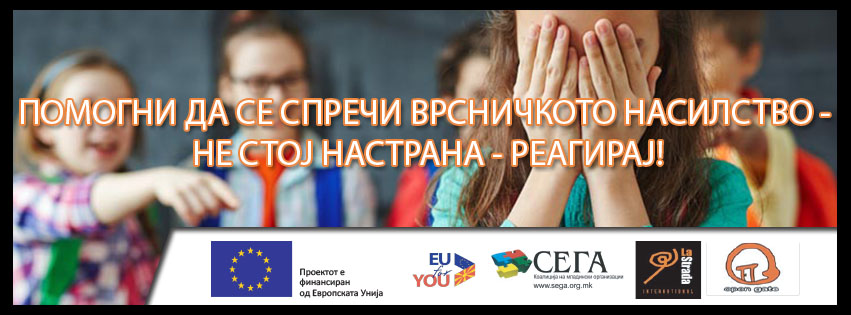
Mental health in children is very fragile and subject to any kind of force, threat, abuse, intimidation or aggressive domination!
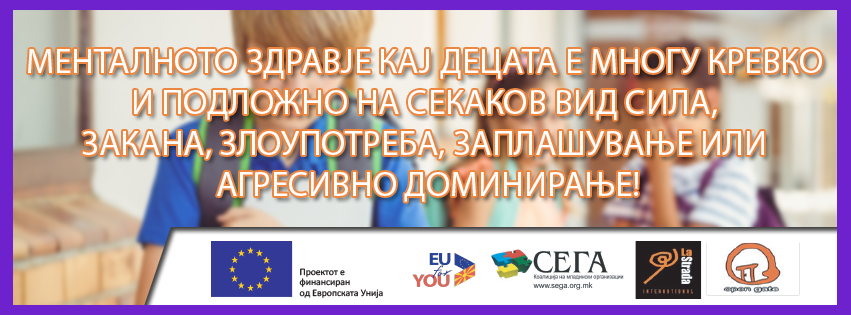
70% of the students in the high schools in our country, answered that violence is present in their school, while 11% stated that violence is frequent.
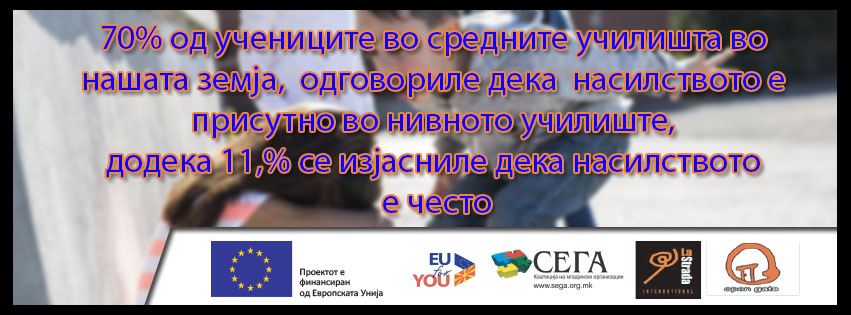
44% of respondents believe that both boys and girls practice violence in schools equally.
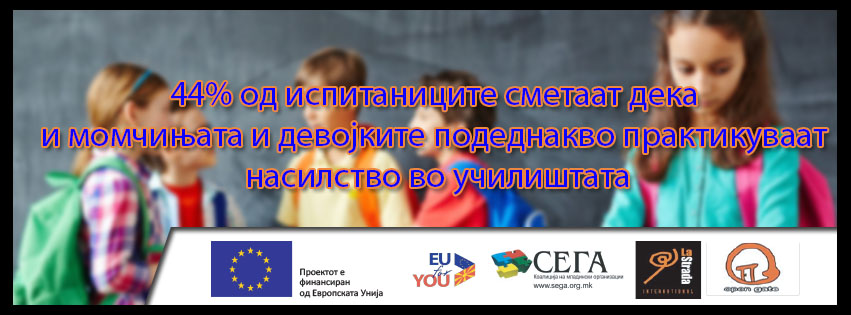
Gossip and spreading lies about someone (48%), as well as ridicule and belittling someone (45%) are the most common forms of violence according to students.
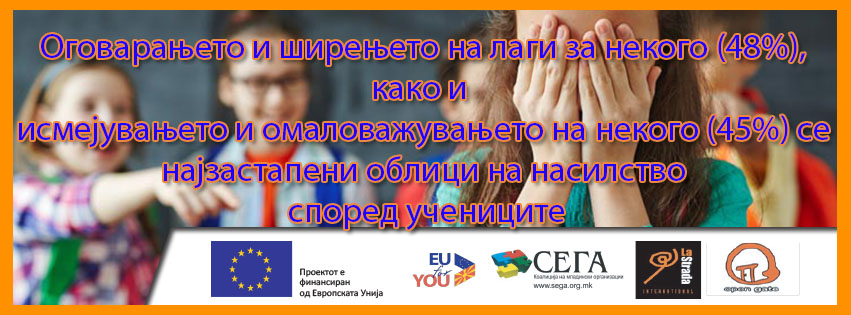
Most of the students witnessed verbal and social violence (35%), while in third place is physical violence.
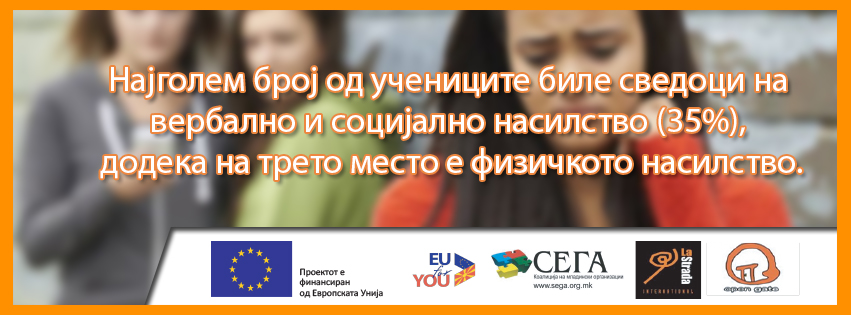
39% of high school students will report violence if they notice it at school.
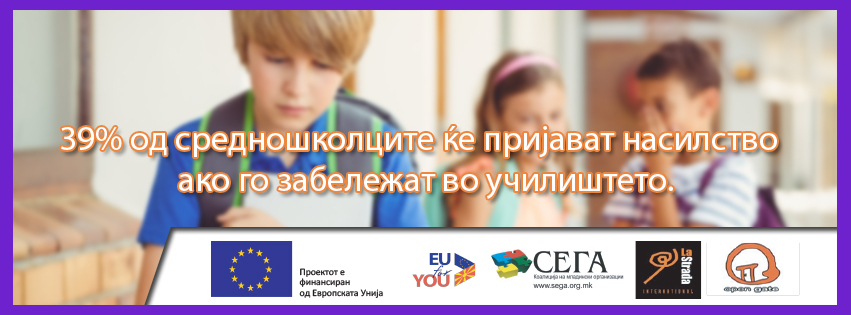
44% of high school students would report violence to the class teacher, 25% to professional services (pedagogue / psychologist), while only 4% would report it to a family member.
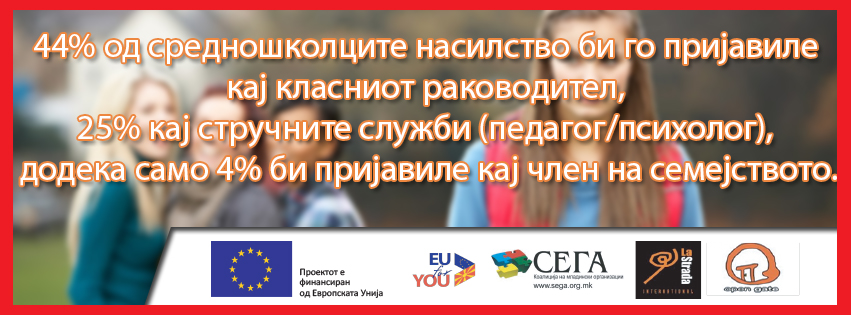
One third of the students (34%) in case they are a victim of violence, would turn to their parents for help while a quarter would ask for help from the professional service in the school.

The most common causes of violence in schools, according to respondents, are proving force (66%), followed by jealousy and showing dominance over others.

According to school representatives, the most common factors influencing students' violent behavior are the student's problematic family, the bad influence of the media, the value system and the general situation in the country.

The schools involved in the project have a Rulebook with defined pedagogical measures that can be taken in case of participation in violence (reprimand, written warning from the class teacher, teacher council and principal, warning before expulsion and as the most drastic measure expulsion from school).

The most commonly used measure in schools is a written warning from a class teacher and a reduction in behavior.

According to school officials, the reporting mechanisms and the prevention of violence between students should be discussed more often in the classroom.

The findings show that just over half of students (52%) believe that more severe punishment of perpetrators will help reduce violence.
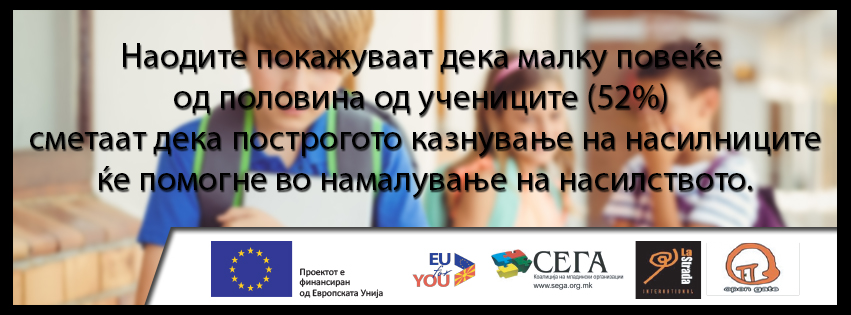
Students would rather intervene to prevent violence than report it, given what is more important in the given situation.
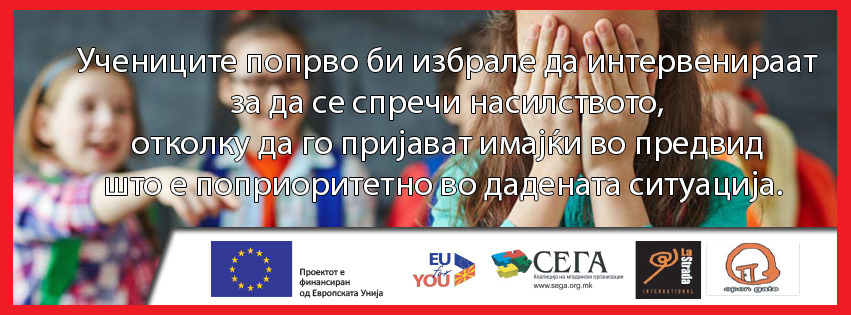
If they notice violence, the schools immediately intervene and, if necessary, involve the parents and / or the SWC.
